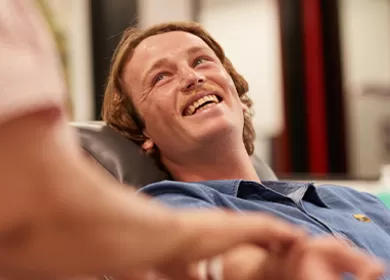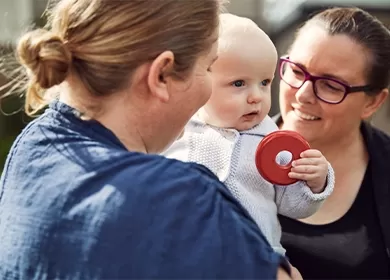Faecal transplant capsules
While it might sound like a hard pill to swallow, faecal microbiota for transplantation capsules could improve treatment access for thousands of Australians experiencing debilitating gut conditions.
An orally administered frozen liquid faecal microbiota for transplantation (FMT) capsule might be available for clinical trials sooner than first thought, thanks to a new partnership with Curtin University.
Lifeblood have joined forces with Curtin University to develop a new faecal transplant capsule for Australian clinical trials. Once established, the capsule could be used in large clinical trials with patients suffering from serious infections of the gastrointestinal tract and to investigate the use of FMT for a range of other medical conditions.
Traditionally, faecal transplants are administered via colonoscopy, enema or nasogastric tube, and the development of a liquid capsule, filled with screened stool, could offer a simpler treatment option.
“There is a pressing demand to make FMT more accessible for clinical trials so we're very excited to partner with Curtin on a project which has the potential to remove cost and time barriers for patients." explained Executive Director Strategy and Growth Stu Chesneau.
This project is part of a successful proposal submission to expand Lifeblood’s FMT program, and the development of the encapsulated product will be funded in part by Western Australia State Government funding.
“Lifeblood is committed to changing lives through donated biological products, and we are incredibly grateful to the WA Government for its support of the Lifeblood Microbiome Program which makes this new partnership possible." said Stu.
A sentiment echoed by partner Curtin University's Vice-Chancellor Professor Harlene Hayne. “This partnership is an exciting opportunity to leverage our organisations' research excellence and revolutionise how biologicals are being used to treat life-threatening diseases."
To learn more about Lifeblood’s work with FMT and to stay up to date with our research on faecal transplant capsules visit the microbiome page.


